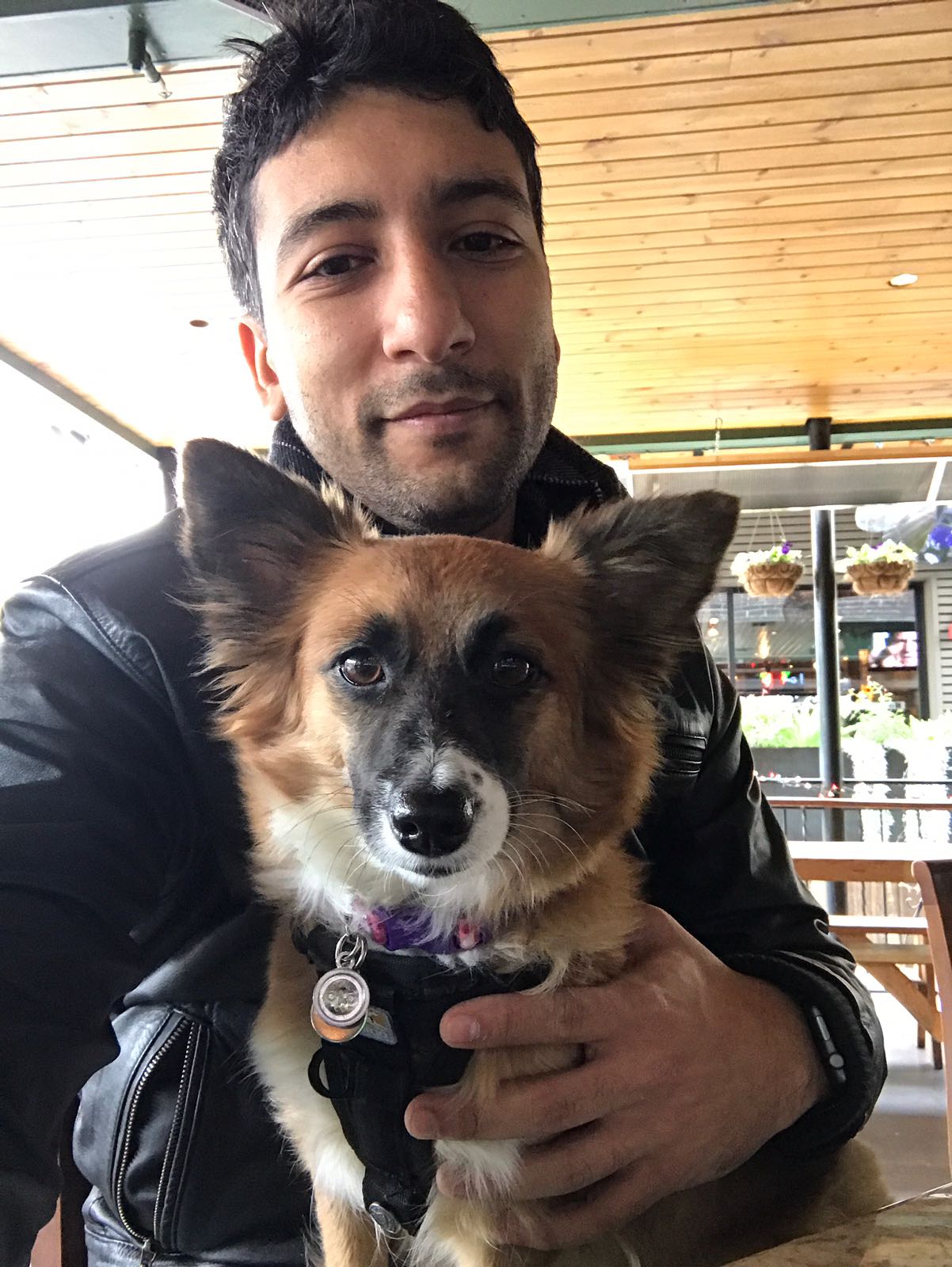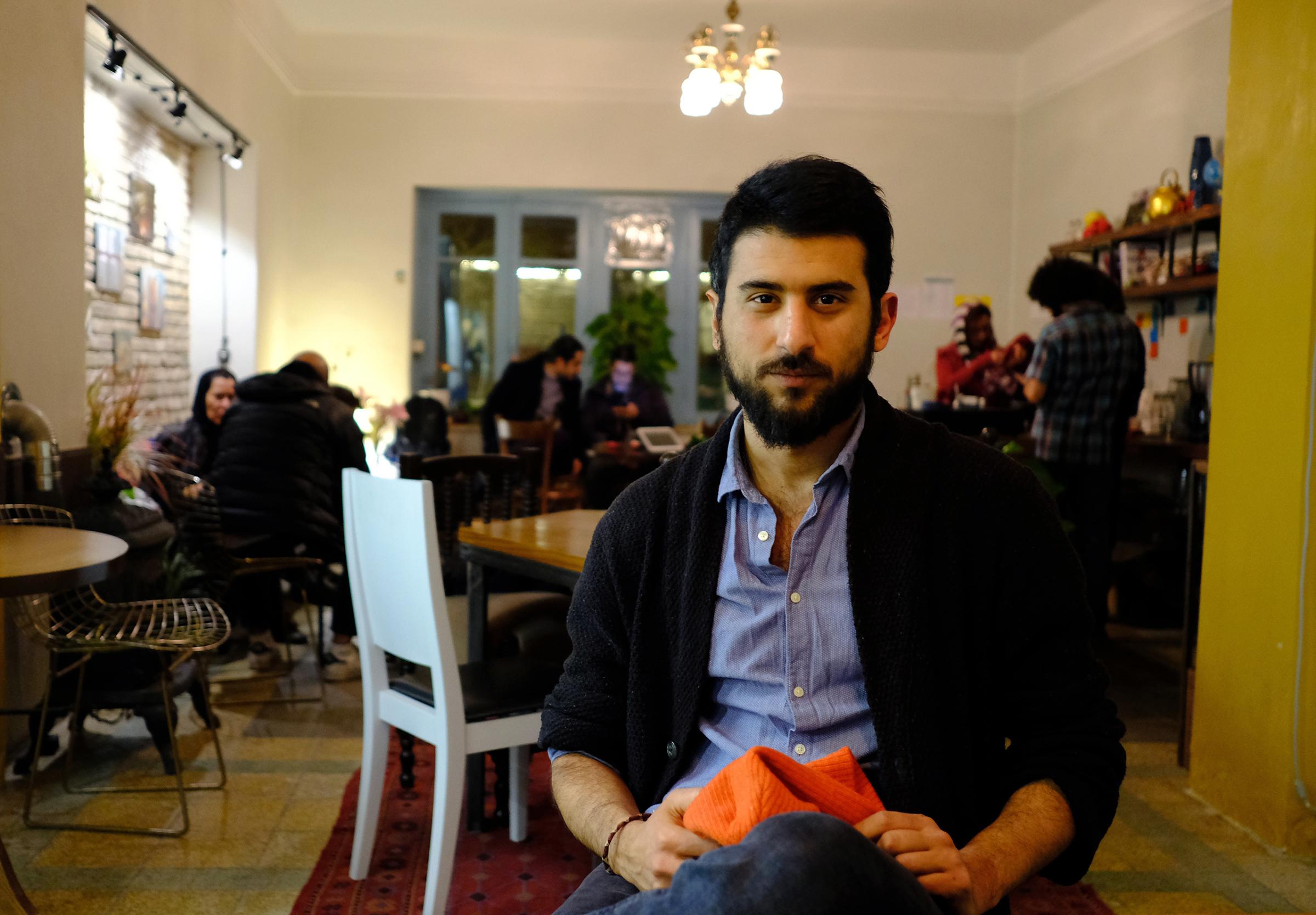When President Trump ordered the government on Jan. 27 to temporarily ban the citizens of seven majority-Muslim countries, chaotic scenes unfolded at America’s international airports. Distraught spouses waited while their husbands and wives sat in detention. Thousands of protesters massed around the terminals. Teams of lawyers mobilized to block deportations in court.
Across the world, Trump’s executive order short-circuited the lives of thousands of other people. The ban applies to people from seven countries: Iraq, Iran, Syria, Sudan, Libya, Somalia and Yemen. Tens of thousands of people from those countries work, study, do business, or have family connections in the United States. The ban barred refugee families fleeing war from resettling in America. It stranded spouses on opposite sides of the globe. And above all it placed thousands of people’s plans on hold.
“It’s tearing families apart. Already the wait was long for these applications to be processed. Now we’re looking at the fact that they’re not going to be coming,” Abed Ayoub, the legal director at the Arab American Anti-Discrimination Center in Washington, said in an interview before the executive order was confirmed.
There is no evidence the new rules would increase security. Rather than sending foreign operatives, jihadist groups such as the self-proclaimed Islamic State have pivoted to recruiting would-be attackers among the citizens of western states, or inspiring sympathizers who already live inside the target counties, as was the case in the deadly mass shootings in San Bernardino, California, and Orlando, Florida.
Rights advocates say Trump’s plan is nothing more than a bid to further stoke racist sentiment. “This is not about national security. This is about Islamophobia and xenophobia,” Ayoub said. “If these measures were in place September 10, 2001, it would not have prevented 9/11.”
In interviews, people affected by the ban said they had been made to feel unwanted. American citizens married or related to citizens of the seven designated countries said the policy transformed them into second class citizens. Above all, the new rules forced thousands of people’s lives into limbo. Everywhere, the people banished from America by Trump’s executive order find themselves simply waiting.
Here are five stories of people left in limbo by the executive order:
Ahmad al-Zirjawi, 24, Iraqi-American chef’s assistant

Ahmad al-Zirjawi came to the United States as a teenager. His father and two brothers worked with part of the U.S. military presence in Iraq, and the family relocated to the U.S. about six and a half years ago, settling in the town of Hilliard, Ohio, just outside of Columbus. He eventually became a U.S. citizen, and he works as a chef’s assistant in a Mediterranean café.
Zirjawi married an Iraqi woman, and in February 2016, he traveled back to the Iraqi city of Basra to help her apply for a visa to join him in the United States. After long months of paperwork, she received a visa in January. The couple had planned to fly to the U.S. in the first week of February. With the news of Trump’s ban, they tried to fly earlier, on January 29. They were two days too late. “When I heard, my heart almost stopped,” he says.
As an American citizen, Zirjawi could return to Ohio on his own, but he refuses to leave his wife in Iraq. He has been unable to find work there. “It feels so bad. You know, I left America, my job, my life. At the same time I can’t leave my wife here,” he says. “Oh my god it’s been a year. It’s too much for me, of just staying home. It’s hard. There’s no jobs. You know Iraq, it’s crazy here.”
“I just want to finish the papers and go home to the U.S.,” he adds.
Aurash K, 31, software developer in Austin, Texas

Born in Texas, Aurash grew up in Houston, the child of an Iranian father and a Colombian mother. “This I think is a uniquely American family. My parents are from two other parts of the world, with completely different cultures and religions,” he says in an interview.
His wife, an Iranian artist, lives in Tehran. The pair completed the final paperwork for her visa in December, and they were awaiting a visa interview. His wife had planned to join him in Austin, where she would continue her artwork, and maybe open a small art school. Trump’s immigration ban puts their plans on hold. When he heard the news of the ban, he said, “I felt the wind was knocked out of me.”
“Group by group, we get separated, and we become second-class citizens,” he says. “I worry, I fear I sometimes have a little bit of a resentment of my countrymen, and I’ve never felt that way about my country.”
“I feel an obligation to be here to help the rest of the country, that feels as I do, to protect what it stands for, what made it possible for me to be here in the first place,” he says.
“I don’t think there’s many other countries you can point to that make it possible for people from completely disparate parts of the world, from different cultures, to have a family,” he also says.
“I always thought that the biggest impetus for Trump’s presidency and popularity was his patriotism to his countrymen, to say legal immigration was important, and to say we are a nation of laws and order, and ‘America first, now I’m forced to ask myself the question, ‘whose America first?’ Because I’m an American.”
Navid Yousefian, graduate student at U.C. Santa Barbara

Navid Yousefian is a graduate student, but he spends his days trying to break the separation between Iran and the rest of the world. Now he has a front row seat to the deepening of the separation between the U.S. and his home country. A Ph.D. candidate at U.C. Santa Barbara, he returned to Tehran five months ago to help open a hostel and cultural center geared toward foreign visitors, part of a larger project called See You in Iran. The initiative sponsors a 93,000-member Facebook group where Iranians and outside visitors can exchange stories and travel tips in a country that grew isolated by decades of American sanctions and hostile relations with some western countries.
Now, as a result of Trump’s immigration ban, he is not sure if he’ll be able to return to California to complete his doctoral degree in political theory. He had planned to return by July to study for his comprehensive exams. Now, he says, “everything’s up in the air.”
“I’m not sure if the ban is lifted that I’d like to go to the U.S. anymore. A part of it is that it’s just a space of terror and fear and I’m not sure I’d like to live in a country that doesn’t welcome me. It’s just a matter of dignity as well,” he tells time, speaking from Tehran.
“Someone asked me if I want to take legal action and stuff like that and I feel very inferior, very offended to be in this situation, that I’m begging the U.S. government to please let me in to your country.”
On Jan. 28, Iran’s government announced that it would ban U.S. citizens, in retaliation for Trump’s restrictions. Yousefian says he opposes Iran’s response. “I think it follows the same discourse as Trump’s. It’s based on discrimination. It’s based on xenophobia, and I think regardless of whether Iran is doing it or the U.S., we need to resist it,” he says.
“I don’t think it helps politics, making more walls among people which are Which are not going to change anything in a positive direction. I don’t think it’s going to fix the problem. I think they’re trying to get back their pride, and say ‘yeah we are also able to do that.’”
Amer Arab, 35, a Syrian software engineer living in Istanbul
A Syrian citizen of Palestinian descent, Arab grew up in the Palestinian refugee district of Yarmouk, in Damascus. Arab has lived in Turkey since 2003, and since 2010 has been married to an American woman who also lives in Istanbul, working as an editor for an economic research firm.
With growing instability in Turkey, including a failed military coup last July, and a series of terrorist attacks on civilians, the couple decided to leave the country, and Arab applied in October to emigrate to the U.S. They had planned to move next summer, either to California or to Washington, D.C., where he planned to continue working as a software engineer, or as an Arabic-English interpreter.
“That ruins all our plans,” he said of the expected visa ban. “For me, I could probably live here longer, but I’m worried for the safety of my wife. She’s an American citizen. The reason we decided to leave the country this year is because of what’s happening in Turkey. It’s becoming more and more dangerous. She’s basically stuck here because of me.”
“He’s not a president who cares about facts. There’s nothing I can tell him,” he says of Trump. “I can’t tell him it’s fine that immigrants and refugees never caused any problems in the United States. He’s not going to listen. He’s going on alternative facts.”
Beheshteh Farshneshani, 30, an investment firm employee in Washington, DC
The Iranian-American dual citizen is planning to hold her wedding at a private estate overlooking the Pacific in Malibu, California. Raised in America since the age of five, Farshneshani planned to invite 12 relatives from Iran to attend the wedding. Some of her relatives had visited the U.S. before, but this time she wanted to show them a different side of the country, the west coast.
The visa process for Iranians was already far from smooth. The path to an American visa usually involves a pricey trip to Dubai or Turkey in order to access American consular services that are unavailable in Iran. This time an uncle and a cousin had their visa appointments abruptly cancelled. Then on Jan. 24, news broke of Trump’s expected plan, ending any hope that they’ll be able to attend the ceremony.
“It’s really difficult to swallow,” Farshneshani tells TIME. “I imagined them being at my wedding, from when I was very young, a little girl, getting married and thinking, my best friend, who’s my cousin at my wedding. She got married, I went to her wedding.” She had no choice but to strike her family’s names from her guestlist.
Faisal, 26, an Iraqi asylum seeker in Baltimore
Originally from Baghdad, Faisal has been living in the United States for about 10 months. Back in Iraq, he worked as a writer and producer on a political satire show called al-Bashir Show. The program made fun of everyone from Iraq’s politicians to the Islamic State gunmen who seized much of the country in 2014. As a result, Faisal and the others working on the show received repeated death threats. Fearing for his safety, he cannot return to Iraq. He asked to be identified by his first name only.
Faisal has two brothers, one living in Baltimore, and another, who left Iraq after working with a company contracted by the United States presence there. His parents are also in Jordan. He’d like them to join him in the United States, but Trump’s executive order throws his plans into doubt.
“There’s going to be certainty about the extent to which we’re screwed when he actually signs the document, but right now we’re in limbo,” he tells TIME.
“I’m really freaking out, and I’m not one who’s easily freaked out,” he says. “I live here alone. My brother lives here as well. But I’ve been living with my family my entire life. We’re very close. I’ve been telling myself ever since I came here that, well, it’s just going to be a few months or a couple of years, and they can actually come here and start a life.”
“I try to be as pragmatic as possible. My brother and my dad keep calling me about my take on everything, and I wish, I really wish at the time that I could tell them, ‘Oh, don’t worry! It’s going to be fine.’ Because it’s just not. It’s not going to be fine.”
More Must-Reads from TIME
- Why Trump’s Message Worked on Latino Men
- What Trump’s Win Could Mean for Housing
- The 100 Must-Read Books of 2024
- Sleep Doctors Share the 1 Tip That’s Changed Their Lives
- Column: Let’s Bring Back Romance
- What It’s Like to Have Long COVID As a Kid
- FX’s Say Nothing Is the Must-Watch Political Thriller of 2024
- Merle Bombardieri Is Helping People Make the Baby Decision
Contact us at letters@time.com